Abstract
The active component(s) in yeast extract required by Thermoplasma acidophilum for growth is polypeptide in nature. A fraction from yeast extract was isolated and partially characterized as one or more peptides of molecular weight about 1,000 containing 8 to 10 amino acids. Although it was composed largely of basic and dicarboxylic amino acids, only one amino group per molecule was free. The polypeptide(s) appeared to bind avidly to cations. No other organic compounds except glucose were needed by Thermoplasma. Among several hundred known compounds tested, only glutathione plus Fe2+ or Fe3+, clostridial ferredoxin, and spinach ferredoxin elicited any growth response.
Full text
PDF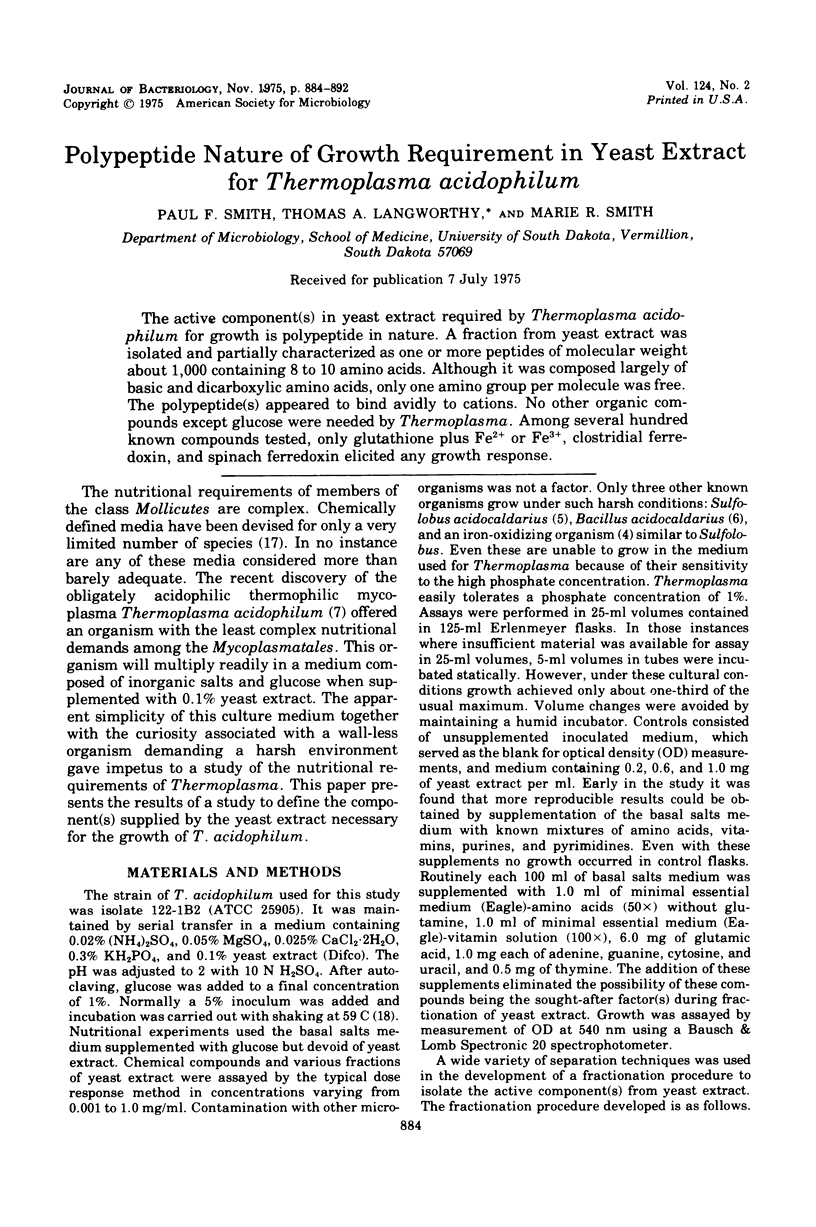
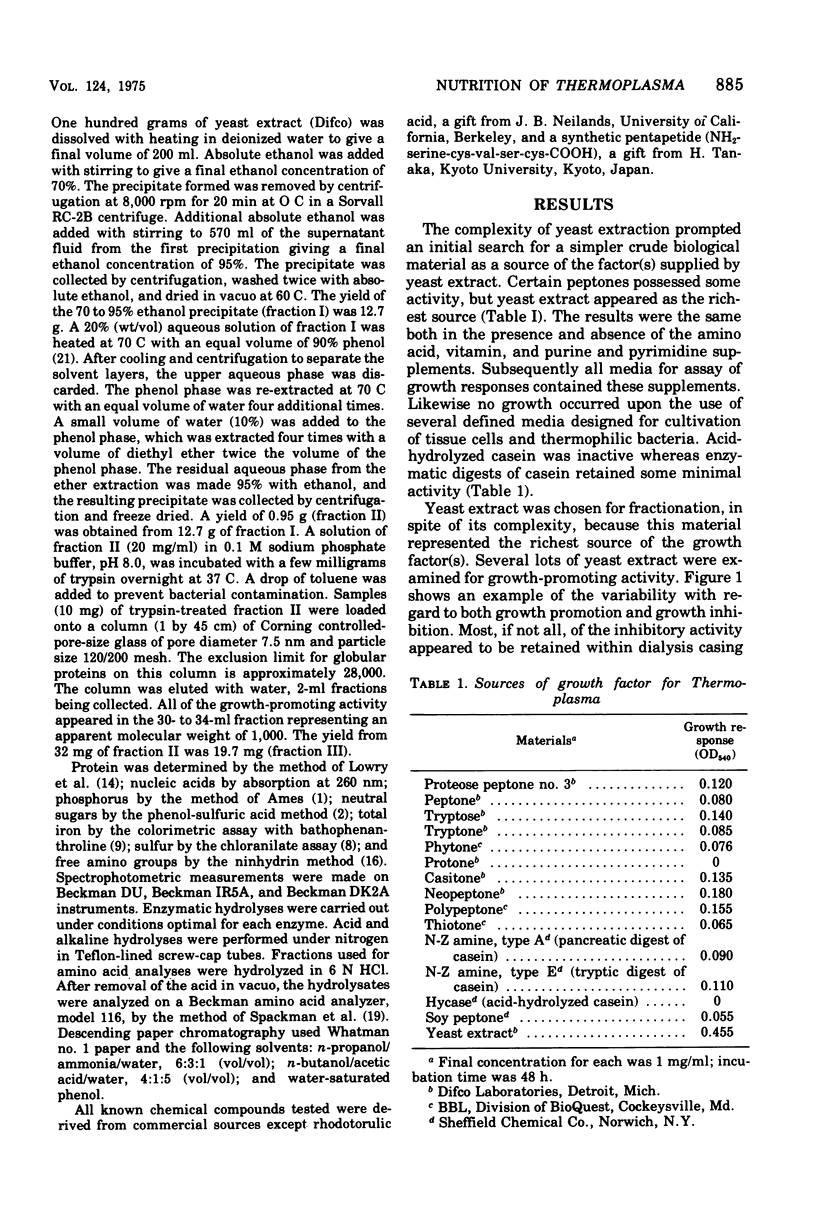
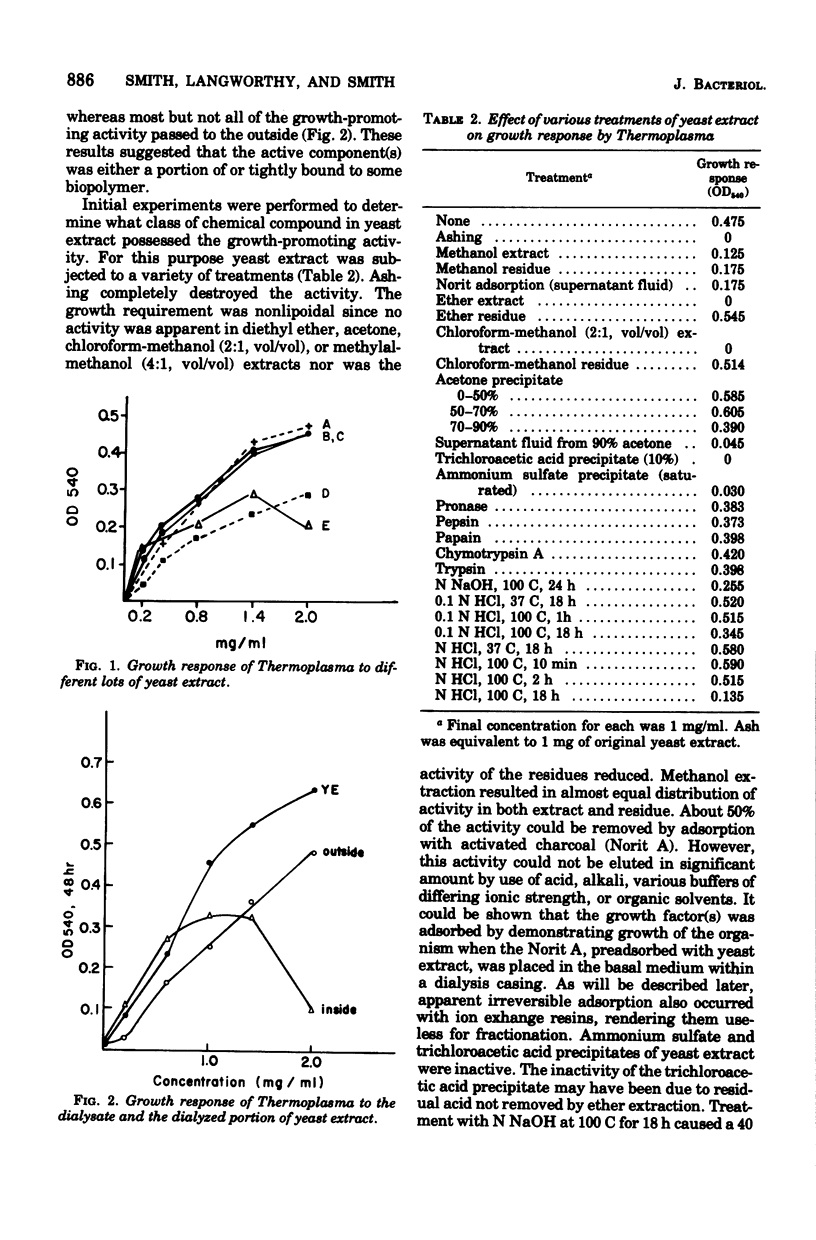
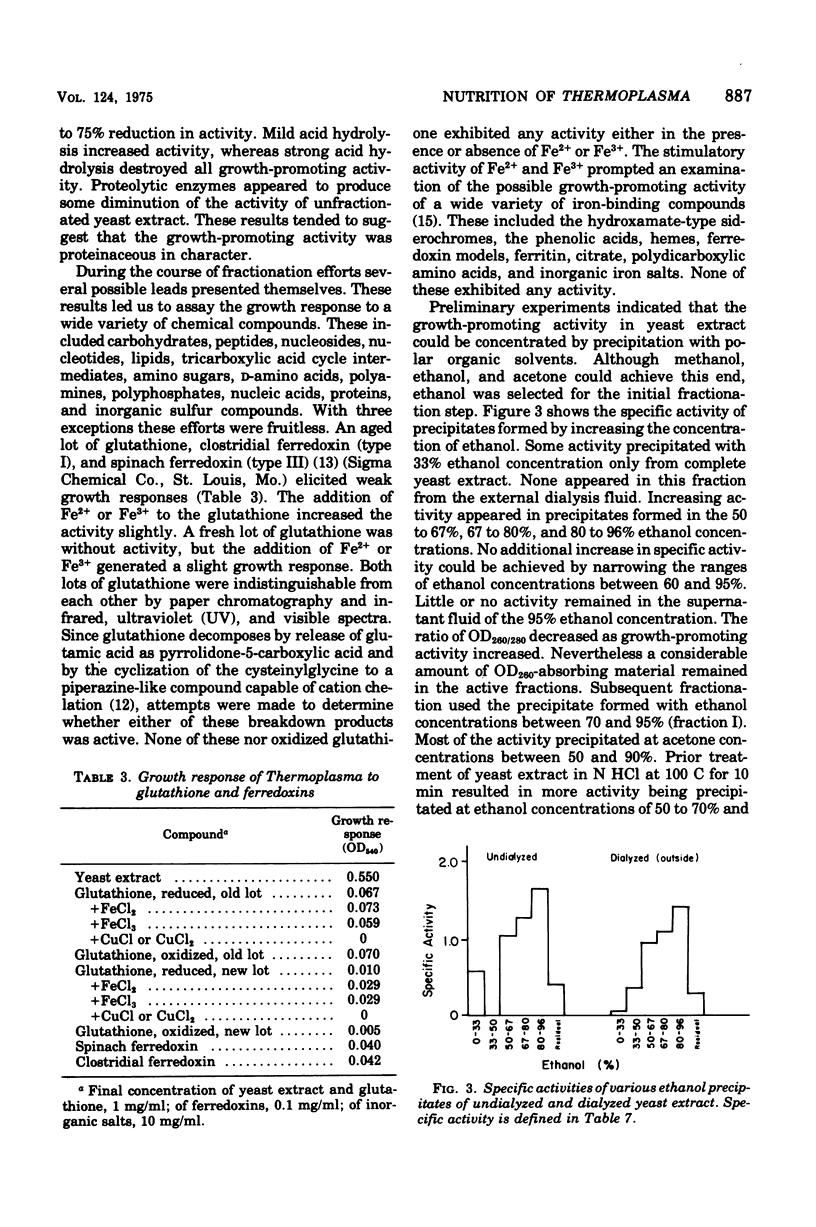
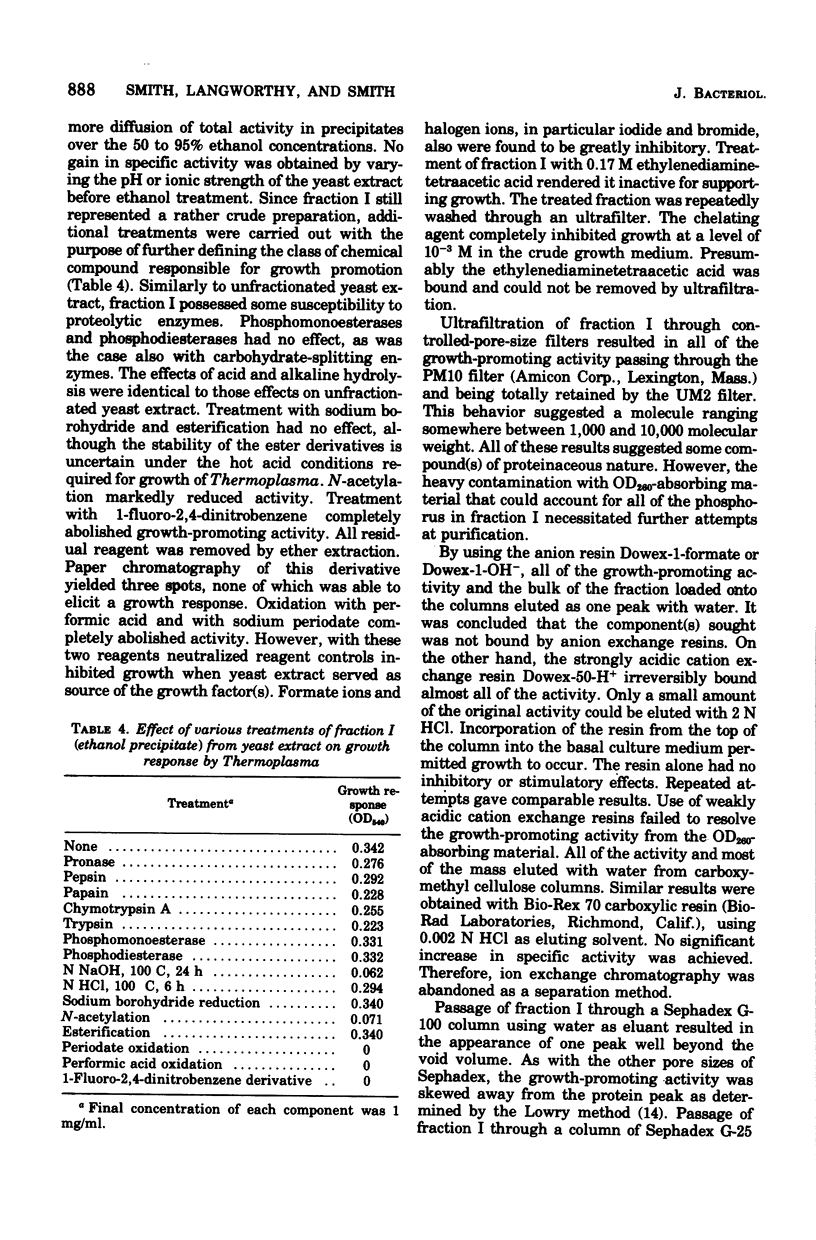
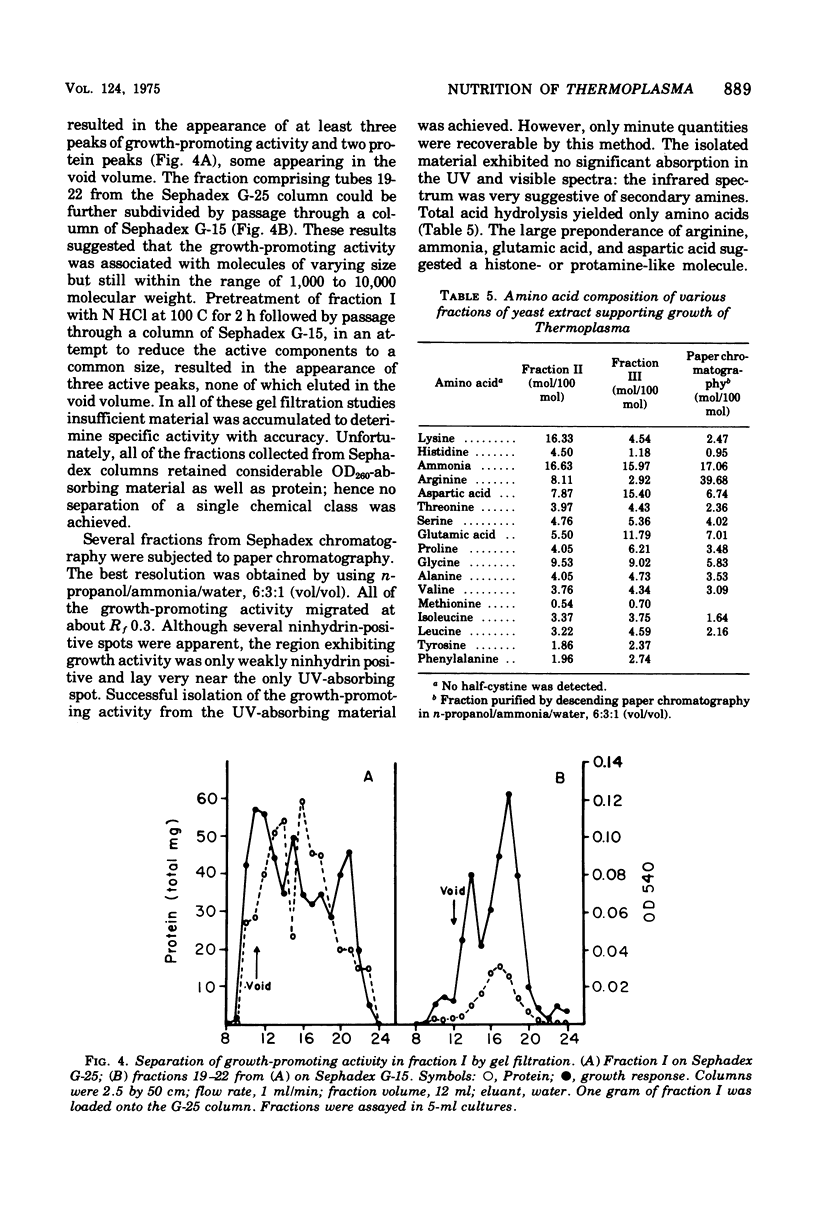
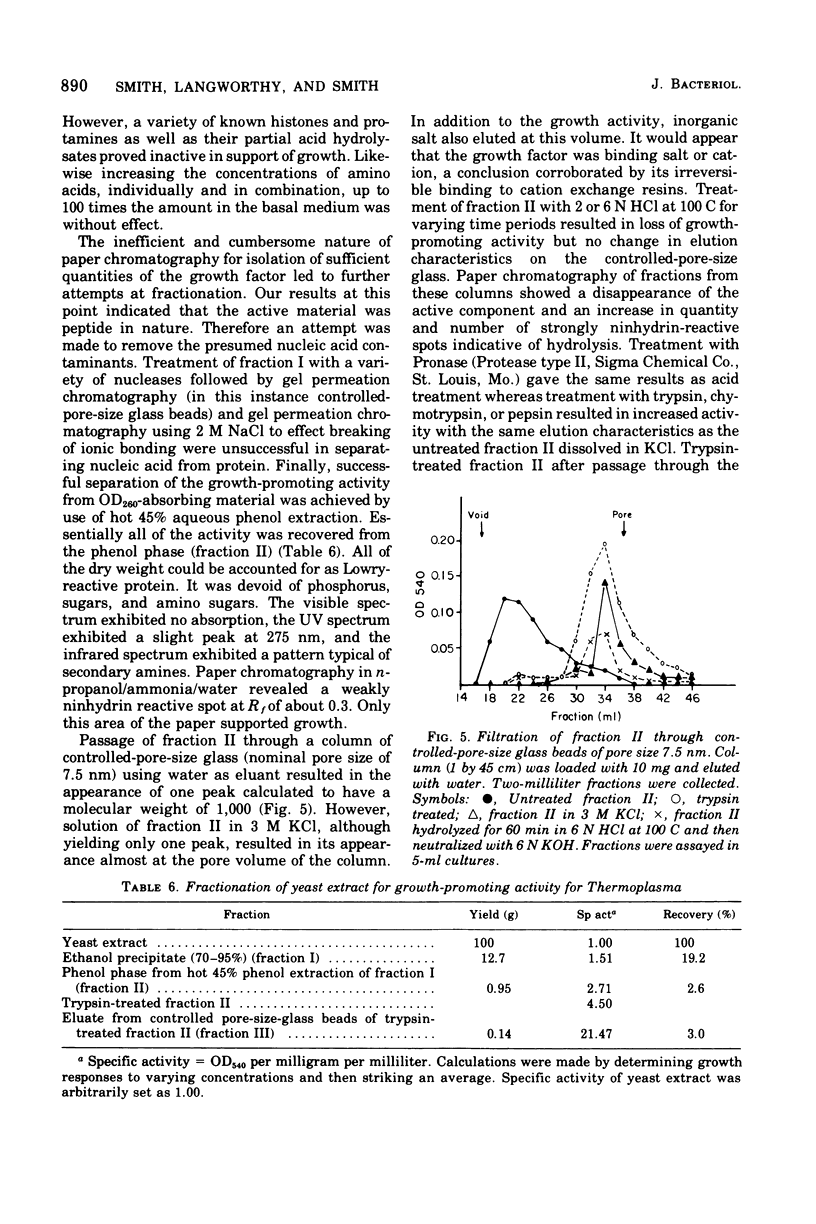
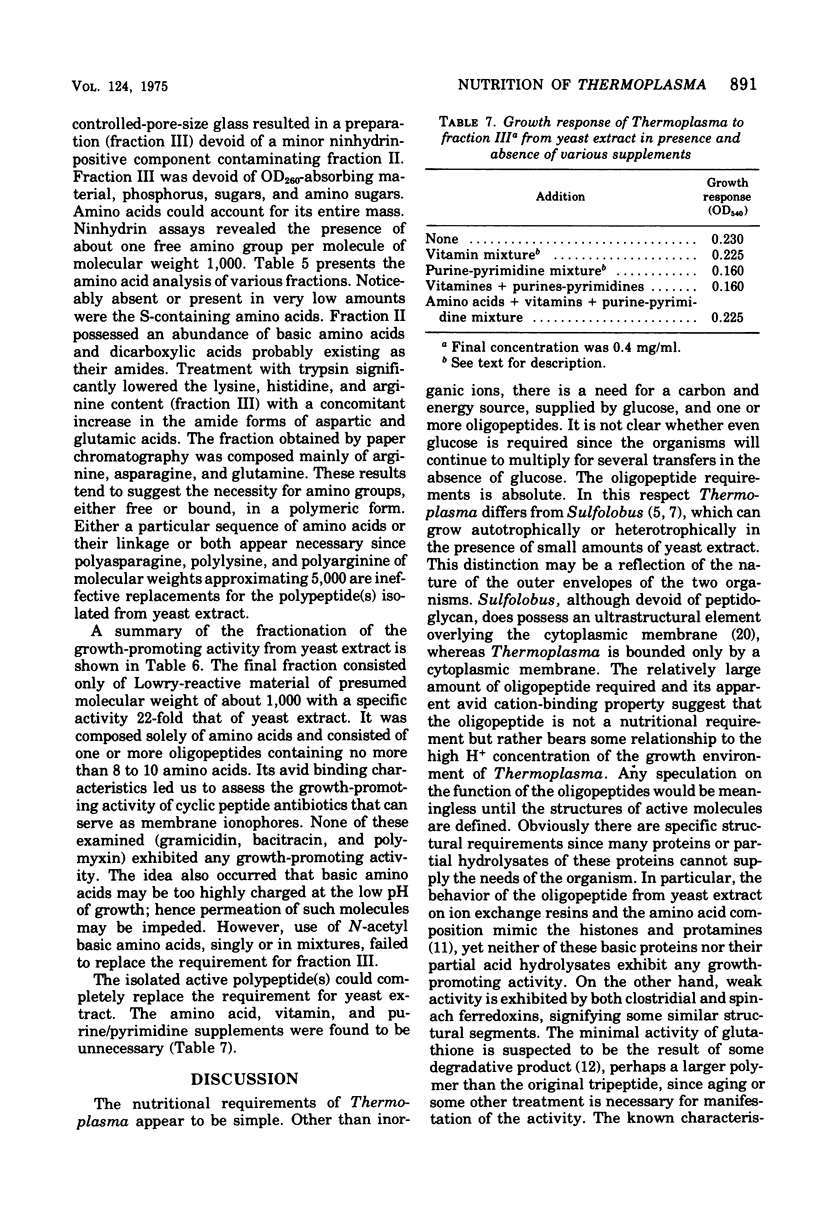
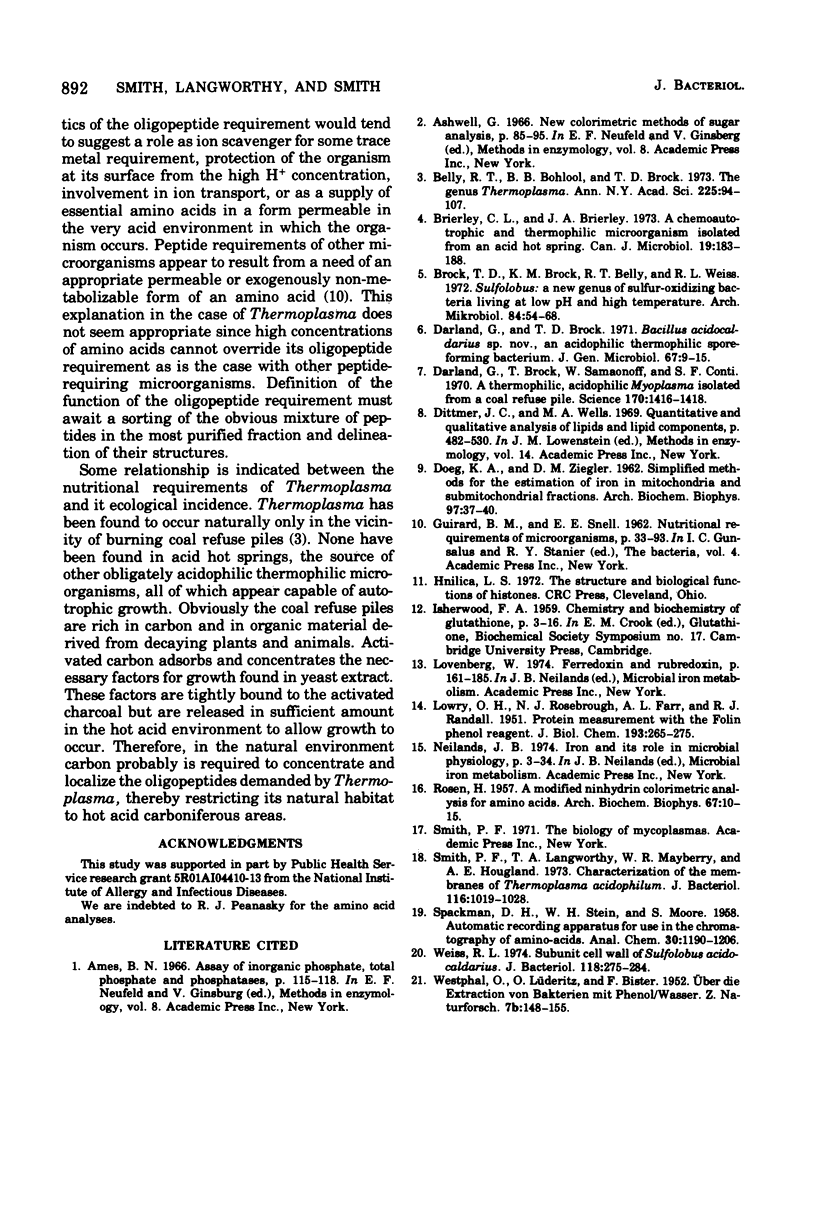
Selected References
These references are in PubMed. This may not be the complete list of references from this article.
- Brierley C. L., Brierley J. A. A chemoautotrophic and thermophilic microorganism isolated from an acid hot spring. Can J Microbiol. 1973 Feb;19(2):183–188. doi: 10.1139/m73-028. [DOI] [PubMed] [Google Scholar]
- Brock T. D., Brock K. M., Belly R. T., Weiss R. L. Sulfolobus: a new genus of sulfur-oxidizing bacteria living at low pH and high temperature. Arch Mikrobiol. 1972;84(1):54–68. doi: 10.1007/BF00408082. [DOI] [PubMed] [Google Scholar]
- DOEG K. A., ZIEGLER D. M. Simplified methods for the estimation of iron in mitochondria and submitochondrial fractions. Arch Biochem Biophys. 1962 Apr;97:37–40. doi: 10.1016/0003-9861(62)90041-3. [DOI] [PubMed] [Google Scholar]
- Darland G., Brock T. D., Samsonoff W., Conti S. F. A thermophilic, acidophilic mycoplasma isolated from a coal refuse pile. Science. 1970 Dec 25;170(3965):1416–1418. doi: 10.1126/science.170.3965.1416. [DOI] [PubMed] [Google Scholar]
- ISHERWOOD F. A. Chemistry and biochemistry of glutathione. Biochem Soc Symp. 1959;17:3–16. [PubMed] [Google Scholar]
- LOWRY O. H., ROSEBROUGH N. J., FARR A. L., RANDALL R. J. Protein measurement with the Folin phenol reagent. J Biol Chem. 1951 Nov;193(1):265–275. [PubMed] [Google Scholar]
- ROSEN H. A modified ninhydrin colorimetric analysis for amino acids. Arch Biochem Biophys. 1957 Mar;67(1):10–15. doi: 10.1016/0003-9861(57)90241-2. [DOI] [PubMed] [Google Scholar]
- Smith P. F., Langworth T. A., Mayberry W. R., Houghland A. E. Characterization of the membranes of Thermoplasma acidophilum. J Bacteriol. 1973 Nov;116(2):1019–1028. doi: 10.1128/jb.116.2.1019-1028.1973. [DOI] [PMC free article] [PubMed] [Google Scholar]
- Weiss R. L. Subunit cell wall of Sulfolobus acidocaldarius. J Bacteriol. 1974 Apr;118(1):275–284. doi: 10.1128/jb.118.1.275-284.1974. [DOI] [PMC free article] [PubMed] [Google Scholar]



